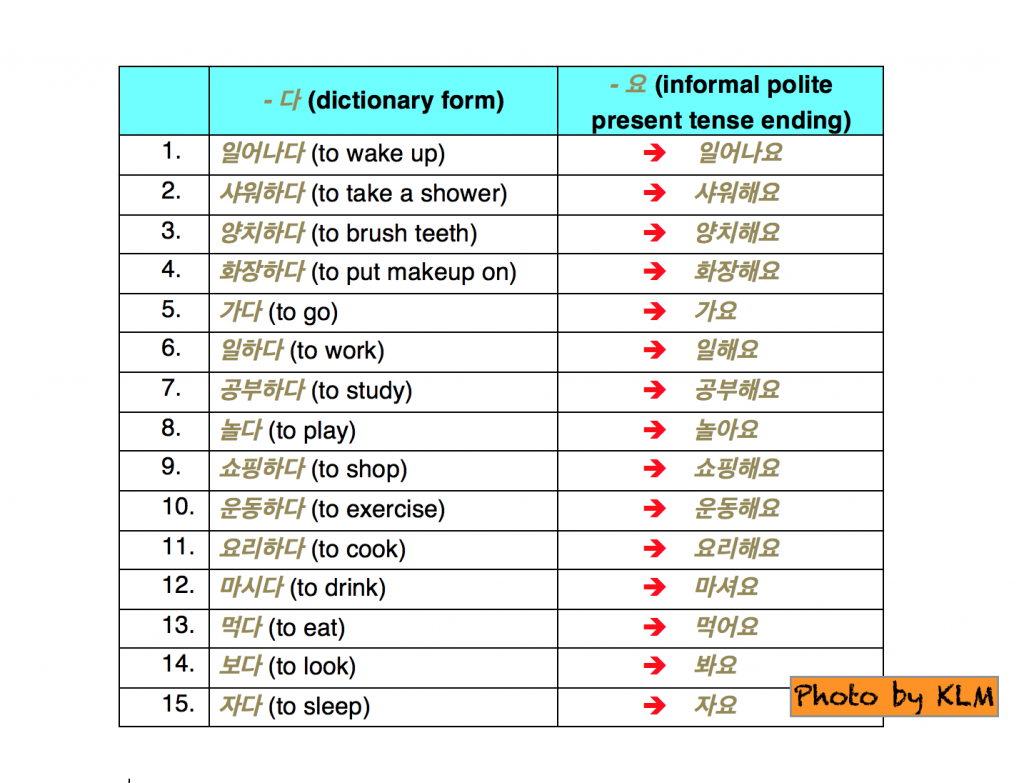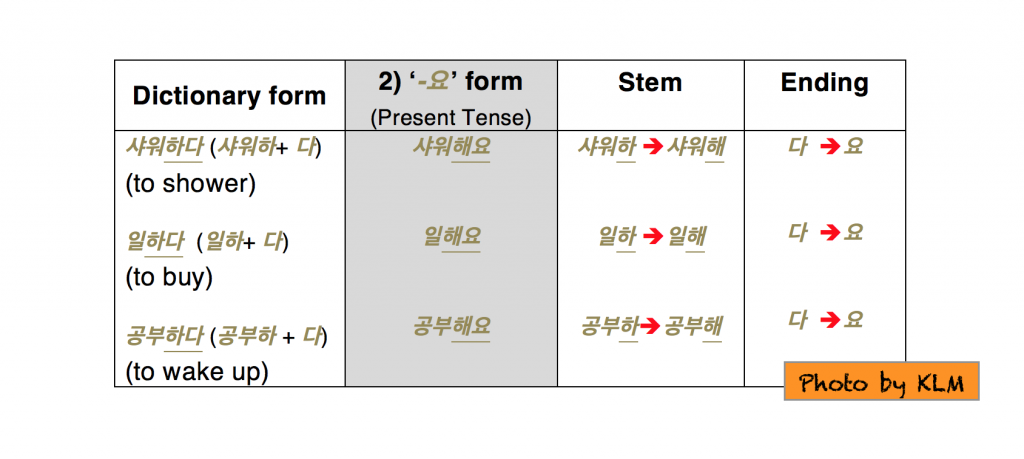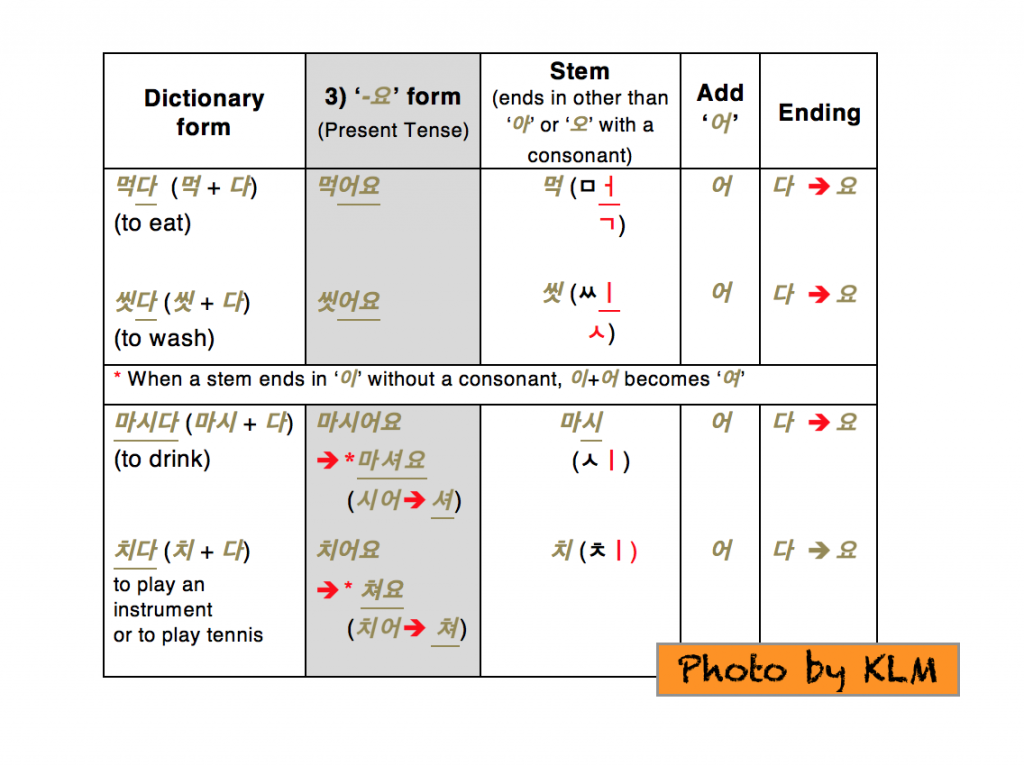Korean Verbs and Your Routine #2 Posted by Kyung-Hwa on Nov 16, 2017 in Grammar, Korean Language, Vocabulary
This is the second series of the Korean verbs and your routine. The last post was about the list of verbs that are useful to describe your routine and how to conjugate their dictionary forms into present tense polite forms. This post will introduce you to two more rules on how to conjugate them in a present tense polite form, ‘-요’ style.
Do you remember the following list of verbs that you can use to describe your routine?
Last week was about one of three ways to change the basic verb form, the ‘–다’ ending, which is the dictionary form, into the informal polite present tense ending, ‘–아요‘ style.
Here are two more rules on how to conjugate Korean verbs regarding your routine into the informal polite present tense ending, ‘– 요‘ style.
* Please keep in mind that these three rules apply only to regular verbs, and the Korean language has irregular verbs, too.
2. ‘– 해요’ form: Although stems of the verb ‘– 하다’ end in ‘ㅏ’, number 1 ‘–아요’ rule doesn’t apply to ‘– 하다’ verbs.
⇒ Simply change ‘하다’ to ‘–해요’
3. ‘– 어요’ form: When the final vowel of the stem ends in other than ‘아’ or ‘오’
⇒ Add ‘– 어요’ to the stem part of the verb.
* When a stem ends in ‘이’ without a consonant, 이+어 becomes ‘여’
I hope both this post and the previous one will help you to talk about your routine in Korean.
The follows are three things that I do everyday.
- 저는 머리를 감아요. (I wash my hair.)
- 저는 커피를 마셔요. (I drink coffee.)
- 저는 영어를 공부해요. (I study English.)
What are three things you do on a daily basis? I would love to hear about them.
감사합니다! (Thank you!)

Build vocabulary, practice pronunciation, and more with Transparent Language Online. Available anytime, anywhere, on any device.






